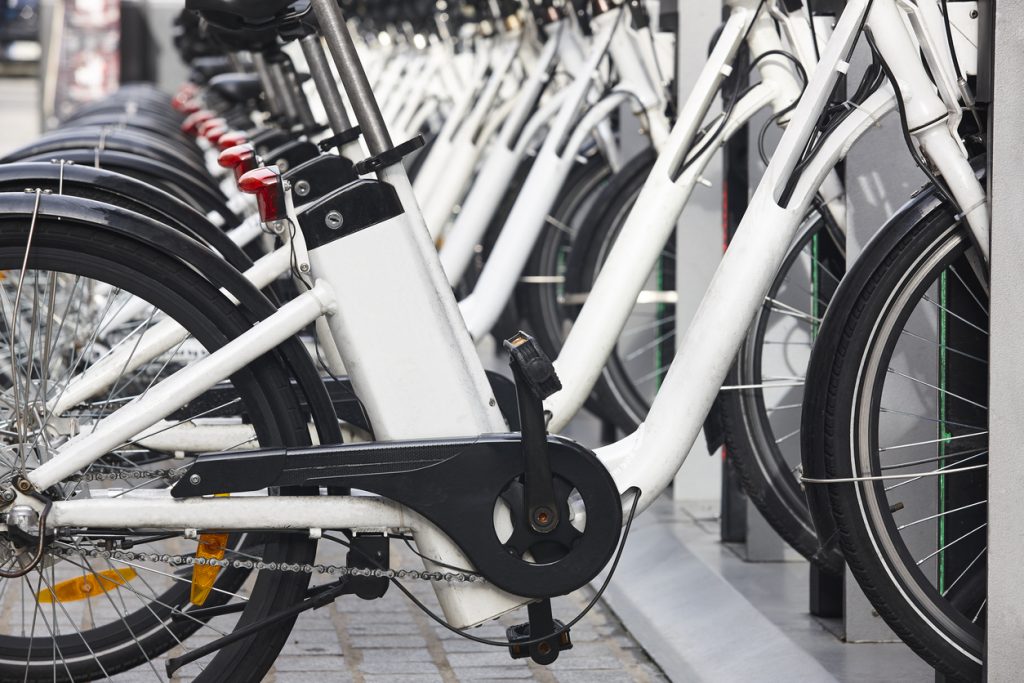
In 2021, we discussed states regulating e-bikes, a topic that has continued into 2022 legislative sessions across the country as electric bicycles are becoming more popular and common on streets. In 2019, estimates showed the e-bike market at $15.42 billion. Further, expectations show that upwards of 130 million could sell between 2020 and 2023. Estimates also show that e-bike sales will generate $20 billion in revenue worldwide in 2023.
Hawaii
State lawmakers introduced SB 2517 this year to address e-bikes, bikes, and commuting. Specifically, the bill would promote bicycle and e-bike use, constituting a certain, unspecified percentage of commuting trips by 2030. The state would measure the goal by using the reduction in vehicle miles traveled with 2023 as the baseline year. The legislature would determine the percentage of commuting trips if it passes the bill.
The goal of the bill is to reduce vehicle miles traveled, decrease the percentage of single-occupancy vehicles, improve safety, and reduce carbon emissions and greenhouse gasses.
New York
State legislators introduced two companion bills requiring liability insurance for e-bikes and other devices. S7294 and A9903 would require liability insurance for bicycles with electric assistance operated anywhere in a city with a population greater than one million (other than on the lands of the bicycle’s owner).
Oklahoma
SB 435, introduced by Oklahoma lawmakers in 2021, would provide tax credits for certain e-bike purchases. Specifically, the bill would establish a one-time refundable income tax credit of $200 to purchase an e-bike. The tax credit would take effect in 2022 and all subsequent tax years.
Rhode Island
In Rhode Island, S2404 would amend state law concerning bicycle operations and intersections of highways. Under the bill, a person operating a bicycle approaching a stop sign would have to slow down and stop before entering the intersection and yield the right-of-way to any vehicle in the intersection or approaching on another highway, among other restrictions.
However, the bill would provide that e-bikes must be regulated like bicycles, and the same road rules would apply to both e-bikes and regular bicycles. Under the bill, e-bikes would not be subject to registration, licensing, or insurance requirements that apply to motor vehicles and have three classifications:
- Class 1 – bicycle equipped with a motor that provides assistance only when the rider is pedaling and ceases assisting when the e-bike hits 20 mph;
- Class 2 – bicycle equipped with a throttle-actuated motor which ceased assisting when the e-bike hits 20 mph; and
- Class 3 – bicycle equipped with a motor that assists when the rider pedals and ceases assisting when the e-bike hits 28 mph.
Further, helmets would be required for riders under 15 years for all three e-bike classes and for all riders of Class 3 e-bikes. Local governments would not be able to restrict the use of Class 1 e-bikes but are permitted to limit the usage of Class 2 and Class 3 e-bikes on bicycle paths.
Latest News
Photo credit: iStock.com/sunstock As concerns over plastic pollution continue to grow, state legislatures across the country are revisiting and expanding policies aimed at reducing single-use plastic waste. Plastic bags, widely used for retail checkout, have [...]
Photo credit: iStock.com/Niiaz Sabirov In 2025, several U.S. states have introduced legislation to prohibit geoengineering, defined as intentional large-scale interventions in Earth’s atmosphere or climate systems, such as cloud seeding or solar radiation modification. These [...]
Photo credit: iStock.com/Hamburg Studios As Pennsylvania continues to navigate an evolving energy landscape, state leaders are proposing new approaches to ensure reliability, affordability, and sustainability. Governor Josh Shapiro recently announced his “Lightning Plan”, a six-part [...]
Photo credit: iStock.com/StudioGraphic As technology continues to evolve, digital driver's licenses (also known as mobile IDs) are gaining traction across the United States. States are increasingly exploring legislative measures to modernize driver identification systems, enabling [...]






Stay In Touch